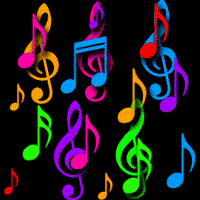
PS3 Rip | ISO | SACD DSD64 2.0 > 1-bit/2.8224 MHz | 48:25 minutes | Scans included | 1,94 GB
or FLAC(converted with foobar2000 to tracks) 24bit/88,2 kHz | Scans included | 726 MB
Monoural | Mobile Fidelity Sound Lab # UDSACD 2084
Genre: Jazz
“Sid’s Ahead” is followed by the track “Two Bass Hit,” written by Dizzy and John Lewis. It’s an off-kilter blues with a wide middle section, no doubt for Lewis’ piano to fill. It’s a wonderful ensemble showcase but Davis blows his ass off in his solo, riding through the two saxophonists and challenging them at the same time. But then comes “Milestones” with its modal round and interval, where harmony is constructed from the center up. It is a memorable tune for not only its structure and how it would inform not only Davis’ own music, but jazz in general for the next seven years. It would also change John Coltrane’s life. The exploratory style of soloing was already revealing itself in Trane’s playing, but he loosens it up even more here. More importantly, this is the first place we get to see it in Davis, where there is no goal at the end of the rainbow, there is merely the solo itself in the heart of the mode. The alternate take of this tune, which is featured at the end of the album, tagged on with two others of “Two Bass Hit” and “Straight, No Chaser,” has an even longer and weirder solo by Davis where he plays notes he probably never played again. The album’s closer is Monk’s “Straight, No Chaser,” which became a signature tune for the sextet even when Garland and Jones left to be replaced by Bill Evans and Jimmy Cobb and later Evans by Wynton Kelly. Like “My Funny Valentine,” it was a Davis staple that accented how intuitive the band was with unusual harmonic structures like Monk’s. The Adderley solo is remarkable for its fluid, bebop-style runs over Garland’s extended chords and flatted sevenths. Cannonball quotes the melody in a myriad of ways and goes off the deep end each time he does, taking the new rendition to its limit, always returning it to the blues root. Davis plays it cool, slithering around the rhythm section staying firmly in blues phraseology, even quoting a reverse harmonic melodic read of “When the Saints Go Marching In,” bringing it in and out three times while pushing the blues line to its edge. Coltrane’s solo is all over the place, slurring notes as he plays weird scales all over the blues and triple times the rhythm section. But he knows the tune better than anyone here — he spent six months with Monk just previous to this playing it every night. Coltrane knows how much he can stretch the intervals without breaking apart the body. He inserts his own modal interpretation on the blues halfway through his solo before slipping into the straight, swinging groove of his Blue Train album, finished only two months before. Garland, oddly enough, is the one to travel the furthest from Monk here, coming off with a Bud Powell-esque blues muscle that shifts the entire tune into a straight bebop blues before sifting in a few Errol Garland quotes as the bass solos and then the front line comes in to take it out. The alternate take is even stranger as Garland falters in his time not once but twice and has to find his way back in.
Tracklist:
01. Dr. Jackle (aka Dr. Jekyll)
02. Sid’s Ahead
03. Two Bass Hit
04. Milestones
05. Billy Boy
06. Straight, No Chaser
Mastered by Rob LoVerde at Mobile Fidelity Sound Lab, Sebastopol, CA.


